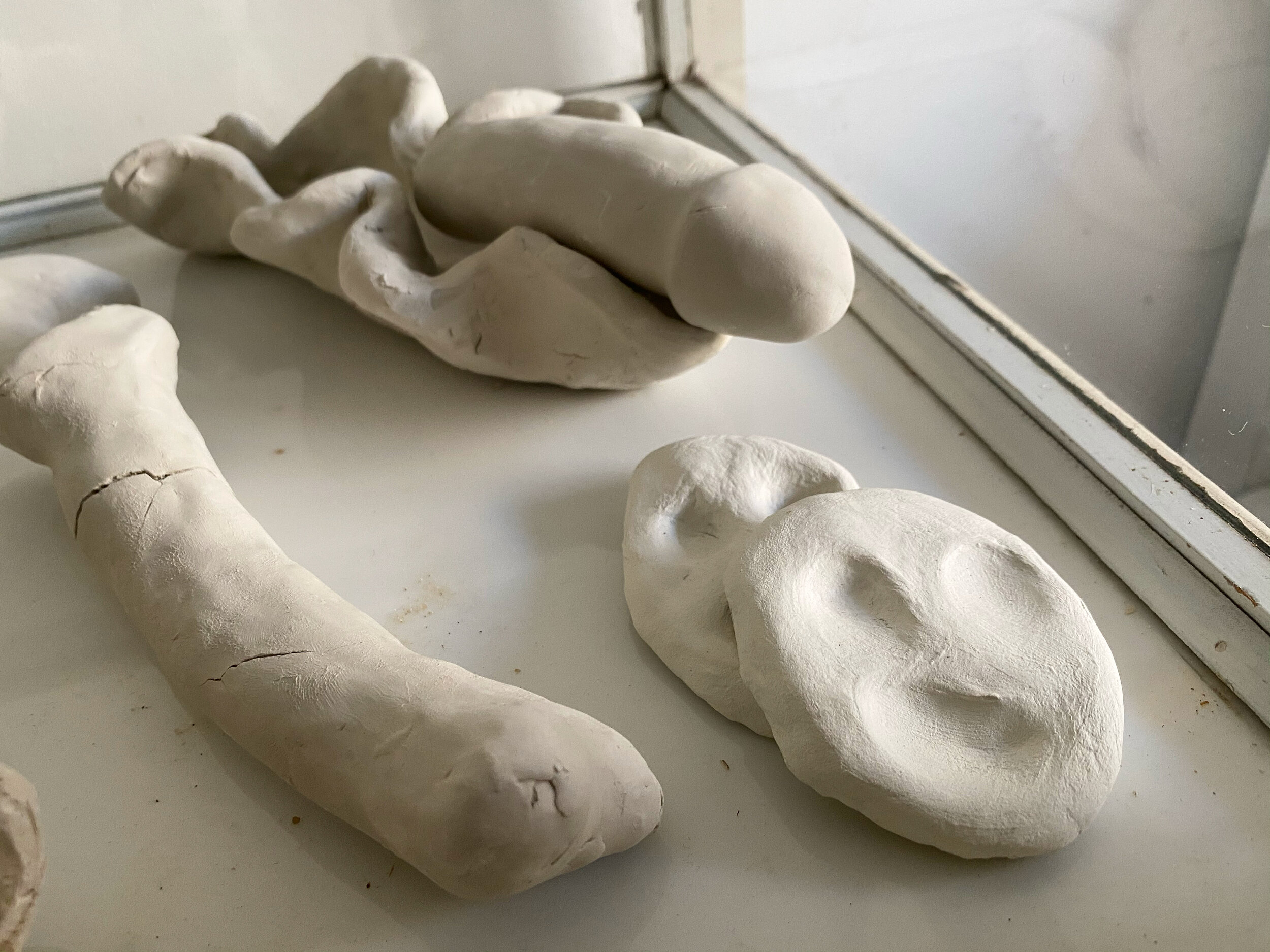Massive clay sculptures of distorted, disembodied body parts lay across a vast expanse.
A group of performers and musicians must find a messy, violent, and
(im)possibly divine embodied
common language
to literally and figuratively
bring a new body to life
- a golem -
while attending to their own
bodies in real time.
go·lem / noun:
(in Jewish legend) a clay figure brought to life by magic
STRATA is an adaptation of the ancient
Jewish myth of The Golem,
in which holy people build a creature out of mud, place scripture in its mouth, and, through divine estatic ritual, activate its life force towards a particular purpose.
The myth of the golem has evolved over time.
First, the story of Adam offers the first Golem - a man made from mud. Then stories of the barbarian creature brought to life only to serve, who then turns against his maker. The story of Frankenstein. And, even the modern day golem of artificial intelligence.
But this piece, asks, what if we are the golem? How can we find the pieces of ourselves that have been displaced - by ancestral and lived trauma and violence - and bring them back together to create a new body?
STRATA is a multi-layered,
cultural project that aims to reveal the
political, poetic, ancestral, and somatic
volition it takes to form a new body.
Through functional movement and play techniques such as somatic experiencing, spontaneous qi gong, alexander technique, and clown, along with ancestral improvisational composition methodologies, STRATA aims to heal inward and outward at the same time.
Through a slow and collaborative process, and an
immersive audience experience, the project aims to create space for release and healing in all its
participants from conception to closing.
The aesthetics will remain of epic proportions, but the process will be as integral as the performance.
The process of STRATA emerges as we work to
unravel personal and ancestral disembodiment.
To do so, we must unpack each element of the project, from who the team is, to what land we’re
working on, to the materials used for the scenic e
lements, to the design and rehearsal
methodologies, to the community engagement, to the audience experience, to documentation. We must interrogate and dismantle the hierarchical, product-based, fear-based modality of art making that so often perpetuates our disembodiment.
STRATA is an attempt to, at every single level,
create a collective, anti-colonial methodology and mythology by returning to ourselves together.



